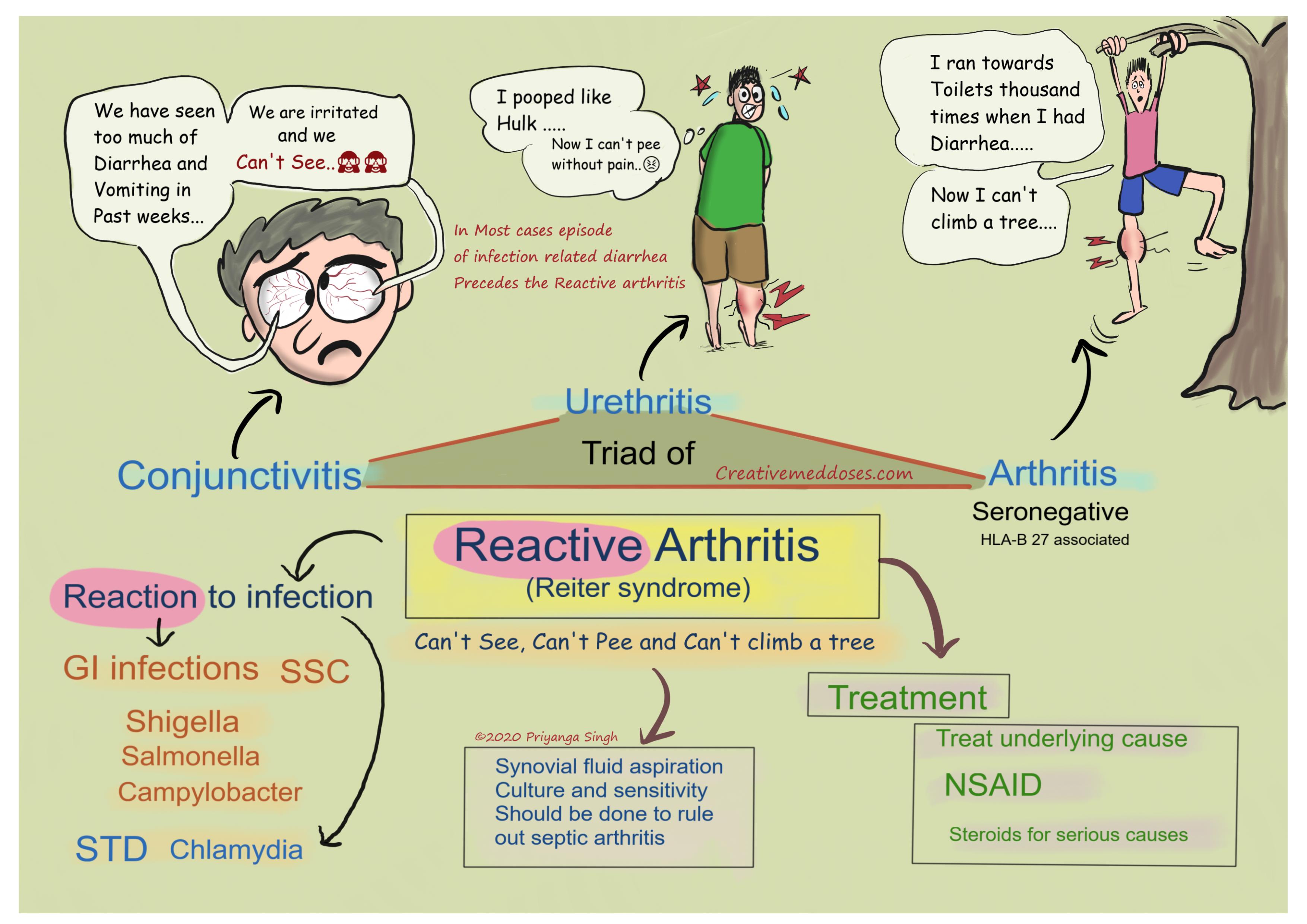Reactive arthritis: Quick review
Reactive arthritis is the inflammatory condition where synovitis occurs in the joints as a reaction to a recent infection. The characteristic triad consists of arthritis, conjunctivitis, and urethritis. The diagnosis is based on clinical features such as patient history and physical examination.
The most common infections that trigger reactive arthritis are gastroenteritis or sexually transmitted infection. Chlamydia is the most common sexually transmitted cause of reactive arthritis.
There is a link with the HLA B27 gene.
Etiology
It is an autoimmune disease which has cross-reactivity after infection by certain bacteria.
Post-urethritis: after infection with Chlamydia (common), Neisseria gonorrhea, or Ureaplasma urealyticum
Post-enteritis: after infection with Shigella, Yersinia, Salmonella, or Campylobacter
Clinical features
- Bilateral conjunctivitis (non-infective)
- Anterior uveitis
- Circinate balanitis is dermatitis of the head of the penis
Management
NSAIDs
Steroid injections into the affected joints
Systemic steroids may be required, particularly where multiple joints are affected
Most resolve within 6 months and do not recur.
...

...
Revision for today https://creativemeddoses.com/topics-list/environmental-enteropathy-pathogenesis/
Subscribe to YouTube channel https://www.youtube.com/channel/UCum2ipWFIH68Xt3houEkyKA